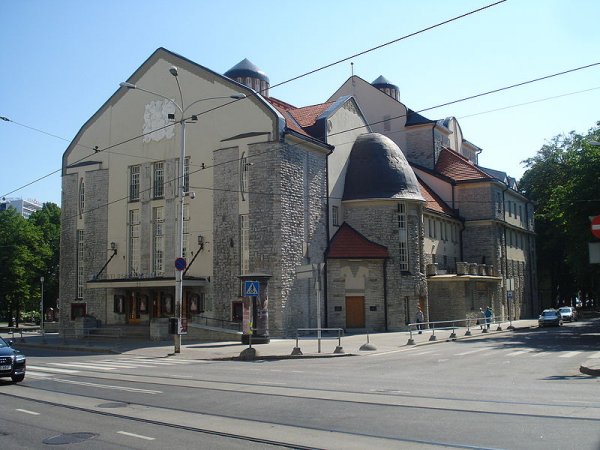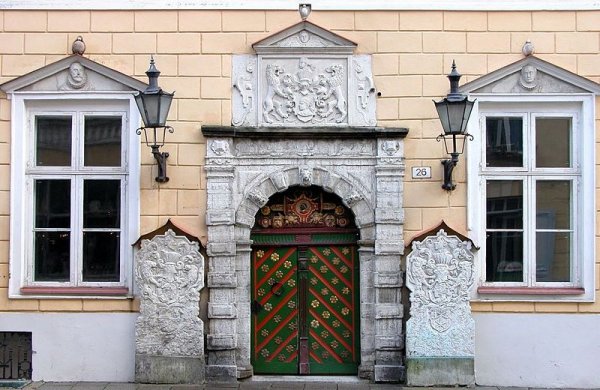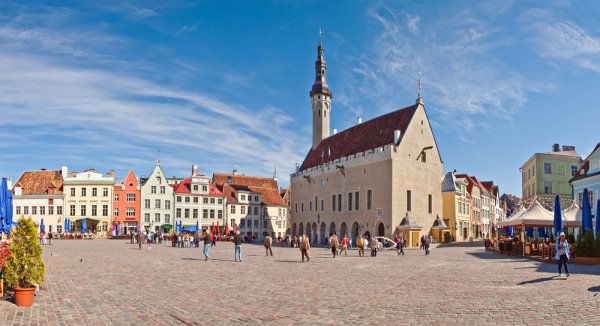Estonian Drama Theater
Eesti Draamateater
This theater was established in 1920, when it was known as the Dramastudio. Renamed the Estonian Drama Theater in 1937, the theater was guided by Paul Sepp, an outstanding producer of theatrical performances whose repertoire consisted of classical, symbolist, and expressionistic types of dramas. Renowned directors lead the theater at present, which still stages Estonian plays, world classics, and other contemporary plays. Classics are played in the Main Hall, and the plays of Estonian authors are staged in the Little Hall with a smaller cast. It boasts of being the biggest drama company in the country and uses the services of 40 musicians.
House of the Brotherhood of Black Heads
Mustpeade Maja
The Brotherhood was founded in 1399 to unite the young, single merchants of Tallinn. The building housing the Brotherhood was built in the 14th century and was redesigned in late 16th century using a Dutch architectural style. The doors and interiors of this building were lavishly decorated. The building was again renovated in 1908, giving it a neo-classical appearance. Today it can be used for concerts and other events. The Brotherhood in Tallinn disbanded in 1940 under Soviet occupation.
Town Hall Square
Raekoja Plats
Town Hall Square has been the center of trade and a popular gathering place for many centuries. Started as an open market before the construction of the current building, the square was used for both celebrations and executions. In summer, outdoor cafés, open-air concerts, handicraft exhibitions, and a modern version of the medieval carnival take place at this square. In winter, the Christmas tree and market help the crowds absorb the Christmas spirit. An array of excellent exhibits and well-maintained artifacts in the Town Hall Square takes visitors through the history of Middle Age traditions.
Copyright © 1993-2025 World Trade Press. All rights reserved.





